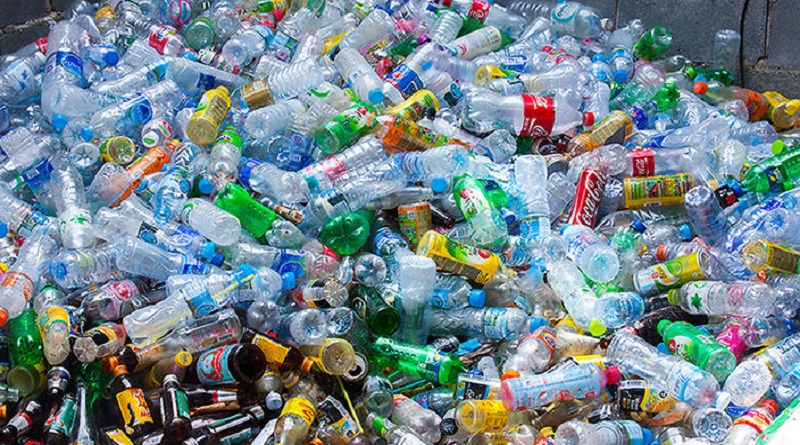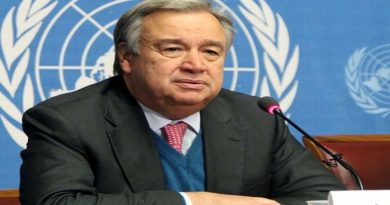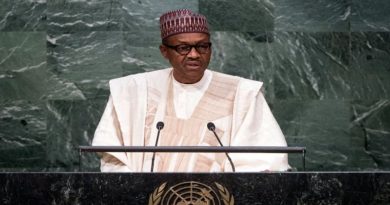Study reveals enormous climate impact of plastic production
Ahead of the fourth round of United Nations negotiations for an international plastics treaty that will kick off in Ottawa, Canada from Tuesday April 23-29, 2024 Lawrence Berkeley National Laboratory (LBNL) on Thursday 18 April 2024 released a groundbreaking study revealing the enormous climate impact of plastic production.
According to LBNL’s study, 75% of all greenhouse gas emissions from primary plastic production happen before the polymerization stage. This reinforces the importance of the treaty covering the entire life cycle of plastic, from extraction to disposal, as enshrined in the 175-country agreement Resolution 5/14, which forms the basis for the treaty talks.
In response to the report, Dr. Neil Tangri, Science and Policy Director at the Global Alliance for Incinerator Alternatives (GAIA), Dr. Jorge Emmanuel of Siliman University, Philippines, and Dr. Sam Adu-Kumi, former Director of the Chemicals Control and Management Centre of the Environmental Protection Agency (EPA), Ghana, have contextualized LBNL’s findings within the Paris Climate Agreement and global carbon budget. GAIA’s calculations (incorporating the data from the LBNL report):
Plastics’ impact on the climate starts with extraction. To fully capture, measure, evaluate and address the impacts of plastic pollution, assessment and regulatory controls must consider the complete lifecycle, beginning with extraction.
Growth in plastic production alone will doom international climate goals. Even if every other source of greenhouse gas emissions – transportation, electricity, agriculture, heavy industry, etc. – were to miraculously and completely decarbonize in 2024, at current growth rates, primary plastic production alone would completely consume the global carbon budget as early as 2060 and no later than 2083.
Deep, rapid cuts in plastic production are required by the Paris Agreement. To avoid breaching the 1.5°C limit set by the Paris Agreement, primary plastic production must decrease by at least 12% to 17% per year, starting in 2024.
A key tension point in the negotiations thus far is over including ambitious and binding plastic production cuts in the final treaty. The vast majority of countries engaged in the negotiation process have remained open to including production reduction targets in the treaty. However a small but vocal minority, primarily made up of fossil fuel-producing nations, have sought to sabotage the talks through obstruction tactics and by arguing that plastic pollution starts only at the disposal stage. In light of the new data from LBNL, this small group’s obstruction imperils the world’s ability to decarbonize in time to avoid climate disaster.
The petrochemical industry itself has had a significant presence at the negotiations– 143 industry lobbyists registered to attend INC-3, a larger group than any national delegation or civil society organization, and has gained extensive access to government representatives from around the world. Civil society is calling for their removal from further negotiations to avoid conflict of interest.
GAIA Science and Policy Director and Senior Fellow at UC Berkeley’s Goldman School of Public Policy, Dr. Neil Tangri, states: “While global leaders are trying to negotiate a solution to the plastic crisis, the petrochemical industry is investing billions of dollars in making the problem rapidly worse. We need a global agreement to stop this cancerous growth, bring down plastic production, and usher in a world with less plastic and less pollution.”
Dr. Sam Adu-Kumi, former Director of the Chemicals Control and Management Centre of the Environmental Protection Agency (EPA) of Ghana, says, “Africa has been one of the most ambitious regions in the plastics treaty negotiations. We recognize the impact of plastic pollution on our people’s health, environment and livelihoods and we know from experience that upstream measures are needed to enable downstream success in combating plastic pollution.”
Dr. Jorge Emmanuel, Adjunct Professor and Research Faculty Fellow, Siliman University, Dumaguete, Philippines, states, “The Philippines is on the frontlines of both climate change and plastic pollution. Heat waves, powerful typhoons and flooding are getting worse, and the petrochemical industry has displaced our traditional systems with mountains of plastic that poison our communities. Whether the treaty includes plastic production cuts is not just a policy debate. It’s a matter of survival.”




